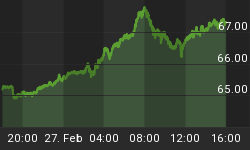Don't shoot the messenger. The downgrade of U.S. government debt by S&P is the result of policies pursued over many years that rely on the U.S. being the world's reserve currency. Policy makers have forgotten that the status must be earned; it's not a birthright.
Some thoughts on the downgrade, as well as recent ECB actions:
With large-scale bond purchases announced, the ECB is moving closer to how the Fed operates in a crisis. In 2008, then NY Fed President Geithner conferred with Treasury Secretary Paulson whether to "foam" the markets. That referred to massive liquidity injection by buying Treasuries.
Now the ECB may buy bonds of the largest European bond market, the Italian. The ECB has indicated it would sterilize any purchases, i.e. not print money on a net basis.
Last Thursday, when the ECB announced it would reopen its six-month funding facility, the central bank may have received a heads up from S&P of the looming U.S. downgrade. The ECB is concerned about a shock that would shun Italy and Spain from the funding markets.
Let's not forget that some of the market tension comes from U.S. money market funds having dumped commercial paper issued by European banks after a lot of scrutiny (we added to that). This is more a re-pricing of funding costs, adding to the pressure that European banks should raise capital, a process long overdue.
Some more thoughts on S&P downgrade;
- Ratings agencies don't want to be caught late in downgrading anyone these days. As such, many may initially shrug off the downgrade. Especially since S&P only points out the obvious, which presumably should be priced in; that said, there is no way to put a positive spin on the downgrade, especially given the negative outlook that accompanied it.
- Initial bond reaction may be a rebalancing of some portfolios to increase average security quality. This may have the ironic effect of increasing allocations to Treasury securities. However, while this logic may apply to select U.S. institutional managers, international managers may veer to other securities.
- One beneficiary has been corporates - the market appears to embrace some corporations as more creditworthy than the U.S. government.
- Foreign institutional managers, however, may choose sovereigns elsewhere; not necessarily immediately, but over time.
- And in general, the downgrade may precipitate de-leveraging, as more collateral may be required. Recently, we have seen signals that U.S. regulators won't require more collateral, but market forces may still move in that direction, if only on the margin [pun intended]
- Net, we see a slight negative for commodity currencies as part of the de-leveraging trend, but a plus for the Euro, as the playing field is leveled - the Chinese are now given the green light to diversify in earnest out of the U.S. dollar. Other Asian currencies should also appreciate, although it may only happen in the medium term.
- Keep an eye on the Fed this week. We expect them to move closer to, or even announce that maturing Treasury securities will be invested in the middle of the yield curve. That should overwhelm the S&P headlines in the short term, causing dollar weakness across the board.
Long term, more pronounced damage is likely to occur in the bond market, but like a frog in a boiling pot, the pundits will likely shrug off this view, as the initial bond market reaction may not be too severe. Politicians will simply complain, but not change. And that will cause further downgrades...
At Merk, our hard currency strategy saw substantial shifts last Thursday and Friday with reductions in the Canadian, Australian and New Zealand dollar, with money re-allocated to the Euro, Norwegian Krone and Japanese Yen. We did not foresee the timing of the downgrade, but positioned ourselves for further global de-leveraging and long-term dollar weakness. The downgrade is a symptom, not a trigger, of the environment we are in.
Having said all this, the situation may be fluid and we may also change our minds. The market is never wrong... Sometimes a bit early or late...
Ensure you sign up to our newsletter to stay informed as these and other dynamics unfold.















